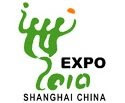With all the business education you can find today with just the click of a mouse, I am still amazed at some of the unrealistic expectations people have when it comes to product sourcing. Those who have chosen product marketing as a business model are naively under the impression that most wholesale suppliers will be able to provide them with just about any popular retail product, affordable to them at any price. Reality, however, always seems to get in the way of our ideals. Most current, in vogue, branded merchandise usually have restrictions on the way it is distributed. For example, LV Handbags are never sold "wholesale to the public", or to just anyone who has a resale certificate. And while there are exceptions, you will never see too many "half off" sales of Louis Vuitton Handbags even at the retail level.
In addition, unsold inventory is not passed along to wholesalers or the secondary surplus market. Excess product that is damaged, is sent to their corporate service centers to be repaired. What cannot be sold or repaired is destroyed. In terms of online retail sales, the only web portal that markets LV handbags is Eluxury.com. Moet Hennessey, one of the leading luxury products group owns Eluxury.com as well as the rights to sell a number of additional products under the Louis Vuitton monique. Moet Hennessey also owns most over the counter retail stores that distribute Louis Vuitton merchandise. Not all brands are as restrictive, but some corporate buying policies can still provide barriers to entry in different ways.
Both Nike and Reebok do not confine the sale of their product to wholly owned corporate retail, or online stores. They distribute their brands to retail giants like Footlocker and will supply most independent clothing or sporting goods stores if they have the infrastructure and the funding to meet their monthly, or yearly purchasing minimums. Most small business start-ups do not have the finances to endure the costs of carrying popular branded merchandise. However, a limited amount of Nike and Reebok merchandise can find their way into the secondary surplus and wholesale market. But, that is mostly shoe or sneaker products that maybe one to two years out of style. You will never find current Nike or Reebok sneaker styles being carried by any wholesale distributor.
Despite some of the strict purchasing obstacles that corporations can provide, it does not prevent some people from giving up on the search for the branded merchandise of their choice. Some will try to bypass a company's wholesale distribution chain or corporate purchasing restrictions by searching for the original equipment manufacturer. Since most popular retail clothing, apparel, sneakers, and electronics are manufactured overseas, the ever-vigilant Entrepreneur will usually turn to importing as means of securing items that have popular retail status here in the United States.
Take for instance Shenzhen, China. In Shenzhen, there is an enclosed shopping mall called Luohu Commercial City. The mall is six stories tall and sells a wide range of items, including handbags, brand name clothes, shoes, audio-visual products, souvenirs, and digital video discs. All can be had for a price that is about half to one third of what you would pay here in the United States. Some DVD's can be purchased for four Hong Kong dollars, which translates to fifty cents in United States currency.
The biggest problem with all of the merchants selling their wares within this megaplex of retail activity is the undeniable fact that most of it is counterfeit. And, like the never ending parade of fakery that is part of the Luohu retail environment, finding your way to the authentic manufacturer or wholesale distributor of a particular branded item is like searching for the proverbial needle in a haystack.
Paperwork, does not make it authentic! There is a prevailing wisdom among some brand seekers that receiving a certificate of authenticity from a brand name overseas manufacturer will provide assurance that the article is genuine. Supplying paperwork to overseas customers as "proof of purchase" for branded merchandise is basically a fallacy. Any labels, tags, paperwork, or certificates of authenticity that assures the buyer of brand certainty can be faked right along with the product itself. The only individual or businesses that are required to have proof of authenticity, are those who are authorized to resell the branded item, or the original equipment manufacturer (OEM), of the brand in question.
If there is a legal challenge to the authenticity of the product they are selling, then paperwork can be provided to confirm that they are legally sanctioned to sell or manufacture a particular brand name product. To my knowledge, no wholesale supplier of brand name merchandise, either overseas, or in the United States, will offer their customers paperwork stating proof of authenticity. The proliferation of counterfeit items within the People' Republic is staggering. The replication industry in China, as well as other Asian countries rely on the production of counterfeit merchandise and has become an industrial staple. It is estimated that 8.5 % of the Chinese GNP involves the production of counterfeit merchandise.
In addition, if you are thinking about importing brand name merchandise through online trading forums such as Alibaba.com and EcEurope.com, than I have some less than encouraging news for you. A majority of the trades leads on both forums require extensive research and a working knowledge of the importing business before you ever think about doing business with any of the listed companies. However, I don't want to be totally negative about trade lead forums. I think that they serve their purpose in terms of finding leads for non-branded general merchandise, manufacturer leads, and industrial equipment purchases. But, I would be very skeptical of anyone who presented themselves as the original wholesaler or manufacturer of American brand name merchandise.
Trying to forge a relationship with someone who claims to have the genuine article can also be a financially dangerous endeavor. Most overseas business to business suppliers require payment in the form of wire transfer or telegraphic transfer (T/T). The purchasing minimum that some suppliers ask for is a shipping container load of merchandise. Wiring cash into an overseas business account can be a recipe for disaster. Once the money leaves your account it is gone forever. If the seller does not deliver, you basically have no legal recourse in terms of getting your money back. The only way to recoup any funds would be for the seller to rewire the cash back into your account. You are basically at the mercy of the supplier.
The bottom line is this. If you want products like Nike Air Jordan, you have to go to Nike and find out how to purchase their products. The same is true with just about any name brand merchandise you want to buy. If you cannot afford a particular product, well, then sell a non-branded item. There are plenty of product niches out there that you can explore. With that being said, I am not the last word when it comes to importing brand name merchandise. Please do your homework and consult the appropriate legal, business and import-export resources.
Did you know that the average person spends at least a month or more searching the Internet for products that they can buy and then resell? Most, give up trying to find wholesale suppliers for their particular product of interest altogether. Are you frustrated by the search for products to sell? The Ultimate Guide To Products For Resale has over 600 wholesale and surplus supply sources in 12 different popular product categories. http://www.productsforresale.com
Article Source: http://EzineArticles.com/?expert=Robert_Potter
skip to main |
skip to sidebar




more on ezinearticles.com/?expert_bio=Remo_Ardali

worldwide visitors
Recent comments
What are the problems you faced in importing from China?
Followers

Blog Archive
-
▼
2010
(13)
-
▼
June
(6)
- Ezine article series 6 : A Lesson in Import Export...
- Ezine article series 5 : China Imports to the Unit...
- Ezine article series 4: Importing From China - Adv...
- Ezine article series 3: Is it Legal to Import Bran...
- Ezine article series 2: Learn How to Import Produc...
- Ezine article series 1 : How to Import Products Fr...
-
▼
June
(6)
Guilin by night

About Me
Ezine top author

more on ezinearticles.com/?expert_bio=Remo_Ardali
Disclosure
© 2009-2010 Remo Ardali. All Rights Reserved. All images and content are copyrighted material and may not be used in any manner without prior written permission.






Your style of presentation is very impressive. The meaningful contribution of your mind reflects on those people who are looking for new ideas and informations regarding handbags. I would like to tweet on it and keep spying at every moment you blogging.
ReplyDeleteGucci bags